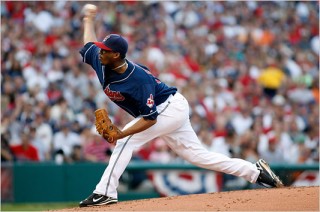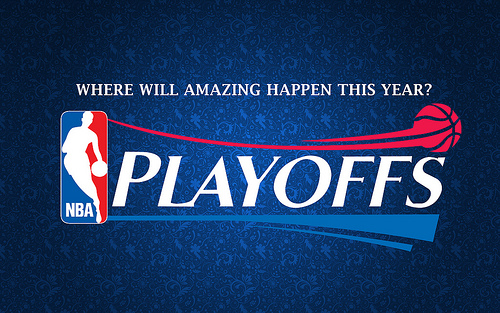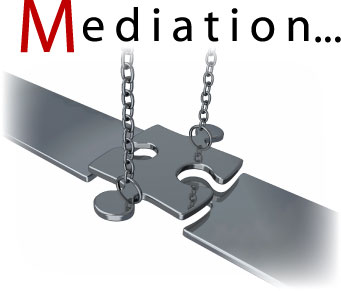 Watching the Indians complete their sweep of the Baltimore Orioles on Sunday served, if nothing else, as a reminder of how easy baseball can seem at times.
Watching the Indians complete their sweep of the Baltimore Orioles on Sunday served, if nothing else, as a reminder of how easy baseball can seem at times.
In still another textbook example of the kind of baseball every team hopes to play, the Indians' victory, indeed the entire series, was a clinic of good starting pitching, timely hitting, and an effective bullpen. When those elements click, any team is unbeatable.
For now all of this stands in stark contrast to how we've been conditioned by the Indians over the last few seasons. In most cases, the Indians have seen at least two of those three elements, and too often all three, shut down at the same time as they've slept walk to one indistinguishable loss after another.
The Indians would seemingly go weeks without getting a timely hit. All too often the scenario played out exactly the same: the first batter would make an out. The next batter would hit a single. The next player would get a single but not be able to advance the runner to third. The next batter would ground out into an inning-ending double play.
If you want a measure of how different things are for this team at the moment, just consider Grady Sizemore's return to the lineup. First of all, he hasn't even been off the requisite year it typically takes to recover from microfracture surgery. Then in his first game back his swing looks nearly perfect as he crushed a ball for a home run. Finally, he still had enough speed to turn a ball down the right field line that didn't get all the way to the fence into a double.
It was enough to make me look twice to confirm that his uniform said "Cleveland."
How exactly are Indians fans supposed to get used to that? We're used to things like Travis Hafner coming down with a shoulder problem that lasts longer than the tenure of most Browns head coaches. We're used to trading great players for projects. We definitely are not used to players coming back from a major injury sooner than they should and performing as if they had been healthy all along.
And then there's the stellar starting pitching. Watching Fausto Carmona get lit up on opening day seemed to fit like a favorite pair of blue jeans. Watching him throw strikes and baffle hitters in every start since seems to fit like a necktie around a shirt collar that's pinching you a little too tightly.
It's not just Carmona, however, that's causing this comforting discomfort. The relief pitching has been phenomenal. Is it just me or is every Indians pitcher getting ahead of every opposing hitter? By the time the 7th or 8th inning rolls around and the Indians are ahead, the bullpen comes in, throws more strikes and the outcome never much seems in doubt.
Even the obligatory standing ovation awaiting the third out has been going exactly as planned. It never crossed anyone's mind, for example, that closer Chris Perez wouldn't get that third out in the top of the 9th on Sunday, just as scheduled.
Now of course all anyone wants to know, including me, is whether or not there is any chance that the Indians can play this brand of interesting baseball for the rest of the season.
Fourteen games into a season is not a fair sample, certainly. Either is 24. But if the Indians are entering the month of June with 50 or so games under their belt and not much has changed, then it will be time to revise the forecasts.
**
 The NBA playoffs started this past weekend and although the games were on seemingly every conceivable television network, just like the first few rounds of the NCAA tournament, it hardly didn't generate nearly that level of excitement.
The NBA playoffs started this past weekend and although the games were on seemingly every conceivable television network, just like the first few rounds of the NCAA tournament, it hardly didn't generate nearly that level of excitement.
Maybe that's because this was the first time in years that the Cavaliers were not part of the story or maybe it was because the NBA's playoff season tends to last longer than the tenure of most Browns head coaches. It's probably some of both.
Indeed, you can essentially put the NBA playoffs on autopilot for the next month and then come back to see where things stand. You won't have missed much in the meantime.
But to those interested in such things, the NBA playoffs do offer some insight worth considering. First, they amply demonstrate why the regular season is such a waste of time. Whatever else one might think of NBA players, one thing about them is abundantly clear: they play in a different gear come playoff time.
Maybe that's true in every sport, but it's far more evident in the NBA. For example, I'm not exactly sure what it would look like for a major league baseball player to work harder in a playoff game the same way I'm not sure what it would look like for a pro football player to do likewise.
But in the NBA, there is no doubt. The players move with more intensity. Their steps are crisper, the plays make more sense, the picks and fouls are harder. It almost seems that in comparison, the regular season is a fraud, a mostly go-through-the-motions exercise to get to the next step.
Second, the NBA playoffs demonstrate exactly why it is so difficult to construct a championship-caliber team. There is no question that only two or three teams at most in the entire group of 486 playoff teams have any chance of winning the NBA title. All of the various first round victims may be getting that ubiquitous playoff experience but it will come at the expense of their drafting position later this summer. And as we know in the NBA, if you don't have one of the top few picks in the draft you might as well draft the tall guy you met at the grocery store. His odds of playing in the NBA are only slightly less than the 23rd overall pick in the draft.
All of which brings us right back to the Cavs. By virtue of their inability to stink up the place at the end of the season as much as they did for the other 7/8ths of it, the Cavaliers will now have the second most ping pong balls in the upcoming lottery. They could still very well get the top pick but why were they even messing with the odds in the first place?
There's no guarantee that the Cavs wouldn't squander the top pick if they end up with it, but the chance of doing so isn't nearly as great as with the 5th or 6th pick. And each time over the next few seasons that the Cavs end up picking 5th or 6th in the draft means another year in the NBA's version of purgatory.
As I've documented before, once a team sinks to the depths of the league, it's a long time, perhaps 10 years or more, before the cycle begins to turn once again in their favor. After the Chicago Bulls last won an NBA title and Michael Jordan retired, it was 6 years until they saw the playoffs again. In the 7 years thereafter, they've made the playoffs 6 times but only past the first round once.
The point is that while Cavs general manager Chris Grant can say the team isn't in a rebuild, every conceivable statistic says otherwise. You can't take lose the best player in the league and reconstruct the team that was built around him under a NBA system that simply won't allow it.
The Cavs are in for a long and slow trek back and so the fans in these parts will just have to get used to the NBA's silly season from afar. But take comfort, by the time the Cavs are once again ready to make a real run, LeBron James will either be retired or on to his fourth or fifth team, like Shaquille O'Neal, as he seeks to hang on for one last shot at a ring. Here's hoping it will also be for his first ring as well.
**
 The NFL draft is only a week and a half away but until the owners and the trade association formerly known as the NFLPA come to some sort of agreement that ensures there will be football next season everything else that happens will be anti-climatic.
The NFL draft is only a week and a half away but until the owners and the trade association formerly known as the NFLPA come to some sort of agreement that ensures there will be football next season everything else that happens will be anti-climatic.
As the parties wind their way through court-ordered mediation it serves as a reminder of how truly complex the business of the NFL (and every other professional sport) really is. The fact that the NFL and its players have high-class problems doesn't diminish the fact that they have problems nonetheless.
If you've ever taken the opportunity to even peruse the expired collective bargaining agreement, you'll understand why it takes longer than the tenure of most Browns head coaches to understand the complexity of the NFL's operations. It's not just a matter of taking the dollars generated in various ways and splitting it up equally among every team. There are significant issues to work through, issues made all the more complicated by a salary cap that overlays an industry where individual players are still free to negotiate their own wages.
There's no way to tell at the moment whether the current round of mediation will produce an agreement but when the parties are talking there is hope. Each round of new discussions gives each side added insight into what it will truly take to reach an agreement. Even if these talks aren't successful, whenever a new deal is reached it will have been set up in part by this round of mediation, just as this round was set up by the mediation that took place before the contract expired.
After listening to Roger Goodell last week talk to Browns fans, I remain convinced that Goodell is a dealmaker who is just looking for common ground. He does want to get a deal done.
The problem Goodell has is the same problem any chief spokesman has. The most difficult negotiation isn't always across the table but with your own people. The owners have a far greater understanding of the economics of the game and thus are harder to corral because of it.
But take heart. Just like the Cavs will eventually return to the playoffs, the NFL will get a new labor agreement and your Sundays (or Thursdays or Saturdays) in the fall and early winter will once again be filled with NFL football. Whether it's next fall and early winter, well, it's too early to say.
**
With the return to network television of one of the best shows ever made, Friday Night Lights, comes this week's question to ponder: If Coach Eric Taylor can literally build a new program at East Dillon, win 2 games in his first season, and then beat one of last year's state finalists in the season's first game, why didn't he get even a cursory interview when the Browns had an opening at the end of last season?